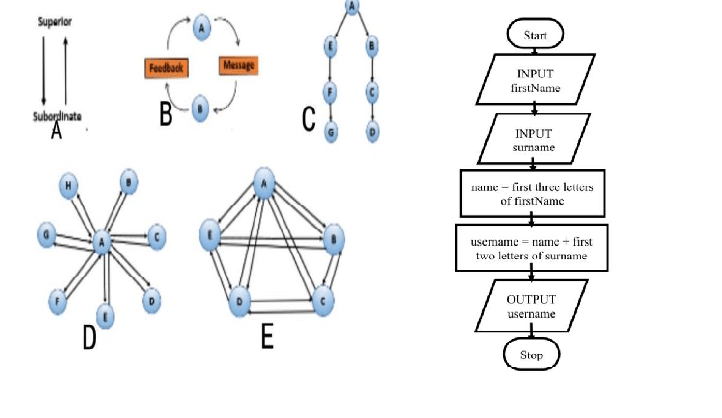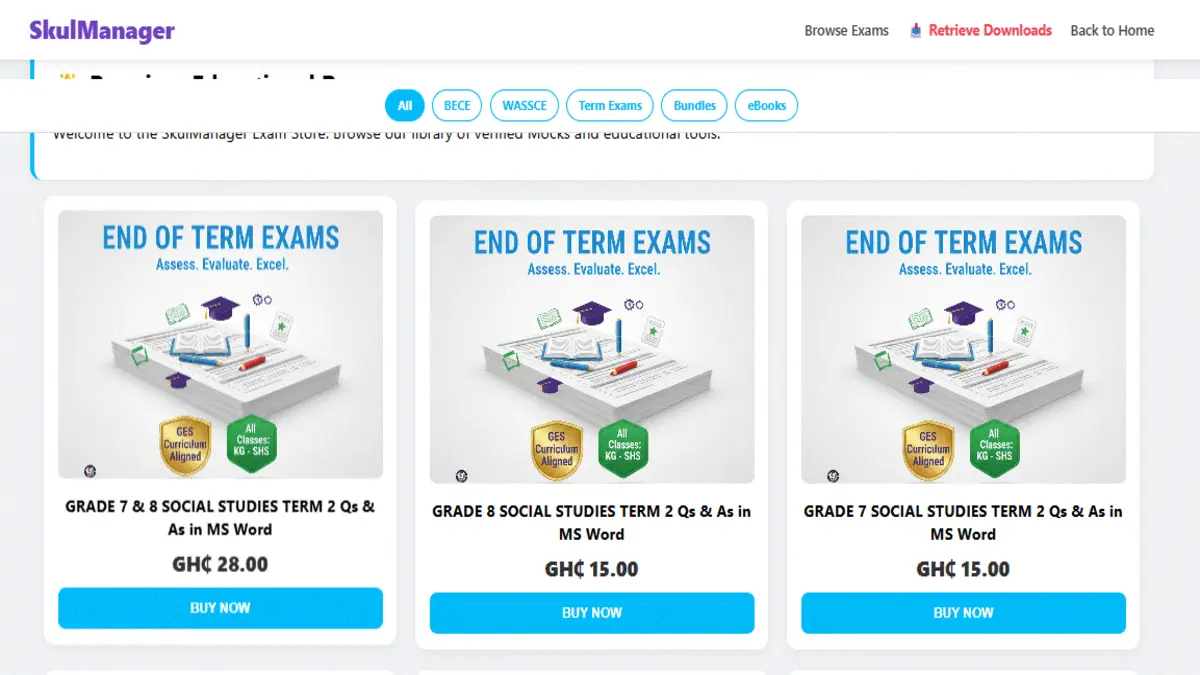As the 2024 BECE enters day 2 paper per, let us take a look at some of the likely 2024 BECE Computing topics to watch
Getting ready for the computing paper goes beyound studying all the areas. It demands that you study thoroubly and understand the concepts as well as keep them in memory.
We used AI to predict Integrated Science, now lets see what AI has to say about Comuputing.
While we do not have what it takes to tell exactly what questions WAEC will ask, we can predict some of the topics to expect braodly. These can also serve as a guide and remind you of the critical areas to cover for the papwer.
Teachers should help their candidates to revise the following topics for the Computing paper.
- Types of typology
- Devices (Storage, Input, and Output): Uses , advantages
- MS Word (How to create a document)
- Electronic learning systems
- Online banking and other uses of the internet for business, health, socialization etc.
- Types of technology eg. AI, Barcoding etc and their uses.
- The system unit (Internal and external parts)
- Creating and renaming a folder
- Basic computer shortcuts
- Excel
Any other sub areas related to the above are worth revising.
20 projected computing questions by AI for 2024 BECE plus answers
Basic Concepts of Computing
- Question: Define the term “computer system.”
- Answer: A computer system refers to a complete computer setup, including the hardware, software, and peripheral devices needed for computing tasks.
- Question: Explain the difference between hardware and software.
- Answer: Hardware refers to the physical components of a computer system, such as the monitor, keyboard, and motherboard. Software refers to the programs and operating systems that run on the hardware and perform various tasks.
Components of a Computer System
- Question: List three input devices and their functions.
- Answer: Keyboard (input text), Mouse (navigate and select), Scanner (digitize documents).
- Question: What is the function of the Central Processing Unit (CPU)?
- Answer: The CPU is the brain of the computer, responsible for executing instructions and processing data.
Storage Devices
- Question: Differentiate between RAM and ROM.
- Answer: RAM (Random Access Memory) is volatile memory used for temporary storage while a computer is running. ROM (Read-Only Memory) is non-volatile memory used to store firmware that is not lost when the computer is turned off.
- Question: Explain the term “secondary storage” and give two examples.
- Answer: Secondary storage refers to non-volatile storage used to keep data long-term. Examples include hard drives and USB flash drives.
Operating Systems and Software
- Question: What is an operating system? Provide two examples.
- Answer: An operating system is system software that manages hardware and software resources on a computer. Examples include Windows and Linux.
- Question: Explain the difference between application software and system software.
- Answer: Application software is designed to help users perform specific tasks (e.g., word processors, games), while system software includes the operating system and utility programs that manage computer resources.
Networks and Internet
- Question: Define a computer network.
- Answer: A computer network is a group of interconnected computers that can share resources and communicate with each other.
- Question: What is the function of a router in a network?
- Answer: A router directs data packets between computers and networks, ensuring data reaches its intended destination.
Basic Programming Concepts
- Question: What is a programming language? Give two examples.
- Answer: A programming language is a formal language used to write computer programs. Examples include Python and Java.
- Question: Explain the purpose of a flowchart in programming.
- Answer: A flowchart is a diagram that represents the sequence of steps in a program or process, helping in the planning and design of the program.
Internet Safety and Security
- Question: What is a computer virus, and how can it affect your computer?
- Answer: A computer virus is a malicious program designed to replicate and spread, potentially damaging files and system performance.
- Question: List three ways to protect your computer from malware.
- Answer: Install antivirus software, regularly update your software, and avoid downloading files from unknown sources.
Data and Information
- Question: Define the terms “data” and “information.”
- Answer: Data refers to raw facts and figures, while information is processed data that is meaningful and useful.
- Question: What is a database, and why is it important?
- Answer: A database is a structured collection of data stored electronically. It is important for efficiently storing, managing, and retrieving large amounts of data.
Practical Computing Skills
- Question: Describe the steps to create a new folder on a computer.
- Answer: Right-click on the desktop or within a directory, select “New” from the context menu, and then click “Folder.” Name the folder as desired.
- Question: Explain how to perform a basic search for a file on a computer.
- Answer: Open the search function (e.g., Windows Search), type the file name or part of it, and press Enter. The system will display files matching the search criteria.
Emerging Technologies
- Question: What is cloud computing?
- Answer: Cloud computing is the delivery of computing services (e.g., storage, processing) over the internet, allowing for on-demand access to resources.
- Question: Briefly describe the concept of the Internet of Things (IoT).
- Answer: IoT refers to the network of physical objects embedded with sensors and software, allowing them to connect and exchange data over the internet.
These questions cover a broad range of topics that are relevant to the 2024 BECE computing syllabus and help students prepare for their exams.









Leave a Reply